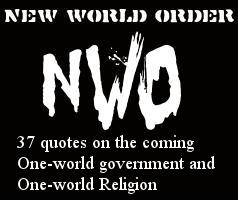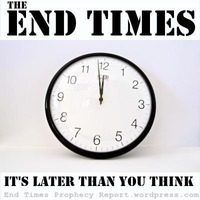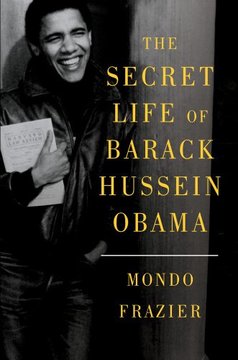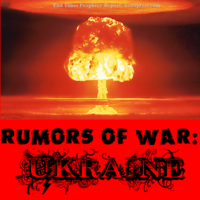
In the interests of multicultural understanding, DBKP presents "Religious Festivals Around the World".
Because multiculturalism teaches that all cultures are equally valid and that making value judgments based on one's culture are 'simplistic', 'racist', 'nationalistic', or 'jingoistic'.

Advocates for the adoption (or maintenance) of official policies of multiculturalism often argue that cultural diversity is a positive force for a society's nationhood or cultural identity.
To promote multiculturalism many places in the West, especially in Europe, this means teaching a watered-down, revisionist form of history to schoolchildren and the branding of "patriotism" as a sin of the simple-minded, uneducated masses; to be avoided at all costs.
Yesterday, millions of Shiites across Iraq climaxed the Ashura rituals in a show of blood. The ceremonies were marked by attacks that killed 21 and a bloody uprising by various doomsday cults.
Shiites make up about 15% of all Muslims worldwide.
In the shrine city of Karbala, almost 2 million people packed the streets and highways for the main festivities commemorating the killing of the Imam Hussein by the armies of the Sunni caliph Yazid almost 1329 years ago in 680.

The provincial governor Akil al-Khazali:
"Two million people have come to Karbala for Ashura," Akil al-Khazali told a news conference as buses began ferrying the crowds of pilgrims home even before the conclusion of the 10-day event.
"There have been no security violations ... and the ceremonies have gone ahead without incident."
The governor had earlier in the week announced the deployment of some 20,000 security force members in and around Karbala, about 100 kilometres (60 miles) south of Baghdad.

Processions in Karbala, which began with thousands of devotees drenched in blood after ritually slicing their scalps, ended with a re-enactment of the battle for Karbala in 680 in which the revered Imam Hussein was killed.
Processions were held through the streets, including by those engaging in the scalp-slicing rite of "tatbir" and others who took to self-flagellation to mourn the death of Hussein.

No good blood-letting ceremony is complete without doomsday cultists.
Most of the violence linked to this year's Ashura, meanwhile, was attributed to a Shiite messianic sect led by a shadowy figure known as Ahmed al-Hassani al-Yamani.
Officials said fighters of Yamani's cult, their yellow headbands bearing the Star of David, rose up on Friday simultaneously in the southern port city of Basra and in Nasiriyah, about 350 kilometres (220 miles) south of Baghdad.
Fighting raged through the afternoon in both cities, during which officials said police posts and several Ashura processions were attacked by cultists wielding machineguns and assault rifles.
The clashes died down in Basra during the night but continued sporadically in Nasiriyah.
A police official in Nasiriyah said Iraq's security forces raided hideouts of the doomsday cultists at daybreak on Saturday, flushing them out of a mosque and houses they had occupied in Al-Salhiyah suburb and ending the uprising.
Police officials said at least 35 cultists were killed in Basra and 18 in Nasiriyah. A total of 12 police, two Iraqi soldiers and three civilians were also killed.
Followers of the cult seek to hasten the return of Imam Mahdi, an eighth century imam who vanished as a boy and whom Shiites believe will return to bring justice to the world.

Besides the doomsday die-hards, there was other violent hot-spots around the country.
Apparently to more than a few, Ashura means celebrating with bombs and mortars.
There were plenty of both.
A spate of violence elsewhere in the country, however, took the gloss off the largely peaceful Karbala pilgrimage, which in recent years has been attacked by Sunni insurgents and disrupted by intra-Shiite fighting.
In northern Iraq, where US commanders say Al-Qaeda jihadists have set up their strongholds after being chased out of Baghdad and surrounding belts, separate roadside bomb and rocket attacks killed nine people, officials said.
In Tal Afar town, insurgents sent a Katyusha rocket scudding into a crowd observing Ashura, killing seven people and wounding 20, Mayor Najim Abdallah told AFP.
In the northern city of Kirkuk, two people were killed and seven wounded in a roadside bomb attack on an Ashura event, police said.
As evening fell, a bomb exploded in a restaurant in the Shiite slum of Sadr City in eastern Baghdad, killing two people and wounding 12, a security official said.
And in Ramadi, capital of western Anbar province, two suicide bombers blew themselves up inside two police posts killing six policemen and wounding 13.
The explosive vest of a third suicide bomber who attacked another police post in the village of Obeid, on the northern outskirts of Ramadi, failed to detonate and he was arrested, a security official told AFP.
The US military, meanwhile, said four Iraqis were killed in a mortar attack in Balad, 75 kilometres (45 miles) north of Baghdad in Salaheddin province.
A military official said the mortar, fired into a residential area, also wounded six people.

About Ashura, an event which marked the split between Shiite and Sunni.
In early Islamic history the Shia were a political faction (known as the "party of Ali") that supported Ali, son-in-law of the Prophet Mohammed and the fourth caliph (temporal and spiritual ruler) of the Muslim community.
Ali was murdered in AD 661 and his chief opponent, Muawiya, became caliph. The great schism between Sunnis and Shias occurred when Imam Ali did not succeed as leader of the Islamic community at the death of the Prophet.
Caliph Muawiya was later succeeded by his son Yazid, but Ali's son Hussein refused to accept his legitimacy and fighting between the two resulted.
Hussein and his followers were massacred in battle near Karbala in AD 680. Both Ali's and Hussein's deaths gave rise to the Shia cult of martyrdom, and to their sense of betrayal and struggle against injustice, oppression and tyranny.
It might seem simplistic to some, but one suspects the risks of Christmas caroling are to be preferred.

And so the festivities and traditions of Ashura are passed from father to son.
Of such things, cultures are formed.
by Mondoreb
& RidesAPaleHorse
[images: AFP]
Sources:
* Blood and Violence as Millions Mark Ashura in Iraq
* Wikipedia - Multiculturalism
* About Ashura
Death by 1000 Papercuts Front Page.































No comments:
Post a Comment
Leave your name/nic.
We've changed the comments section to allow non-registered users to comment.
We'll continue like that until it's being abused.
We reserve the right to delete all abusive or otherwise inappropriate comments.